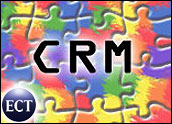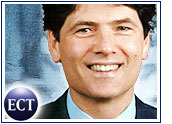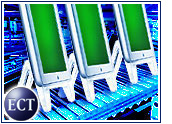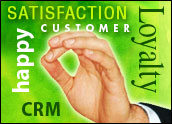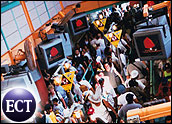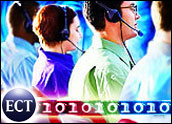
Just as many companies that adopted CRM applications years ago often failed to use the data they collected, call centers that tape inbound calls for regulatory compliance and quality assurance often lack the time and the staff to listen to the calls and learn from them.
Enter speech analytics software. More companies are employing the technology to cull customer data and feedback from inbound customer service calls. Speech analytics helps make marketing tactics smarter and stronger.
“In the average call center, thousands, millions of calls are taken, and in every one are little nuggets of information,” said Kevin Hegebarth, director of strategic analysis for Witness Systems, the Roswell, Georgia-based developer of eQuality CallMiner.
Early Warning
Gaining early warnings of emerging customer and agent issues can establish a competitive advantage and have a positive impact on the bottom line. According to Hegebarth, users of speech analytics software make lists of key words and phrases that their customers might use, and Witness Systems programs these into the rules engine of the software so it can extract important information from every recorded call.
Words and phrases not preselected but heavily used by callers appear on a top 50 trend report delivered to the client, letting it refine its approach. For instance, if callers frequently mention competitors’ names to teleservices representatives, call center management may want to train agents with powerful replies, or it might even restructure its pricing or features to outmaneuver its fiercest opponent.
Growing Market
According to a Forrester report, the speech application market is expected to grow from $700 million today to a multi-billion dollar business by 2008.
Esteban Kolsky, research director at Gartner, said speech analytics offers several benefits. “One, you can detect problems as they are becoming problems, either by keywords, emotion or even intonation such as sarcasm,” he told CRM Buyer.
Marketers can also identify opportunities for upsell or cross-sell by the presence of certain keywords or phrases. With this knowledge, they can enhance training programs and modify sales pitches.
Analyzing calls allows both positive and negative patterns and trends to become visible. Organizations can classify call types, identifying customer interactions that could be served more cost-effectively through a self-service channel. Determining a call’s root cause and taking action can have a dramatic effect on the number of calls received, driving down costs.
Kolsky added, however, that this does not end up reducing the number of agents. “It does allow the agents to be more effective with clients, and it does allow [call centers] to have potentially fewer live agents and have some replaced by automated ones, but the cost and resources needed to make the speech bots work is considerable higher than savings you would get with reducing personnel. It is, at best, a wash.”
Software Does the Work
Continental Airlines already reviewed its recorded inbound calls so as to pick up clues on how to better train its call center reps and to determine why customers call rather than seeking information through other channels. The airline turned to Witness Systems, Hegebarth said, because it wanted each inbound call to generate revenue.
The airline’s fall implementation of eQuality CallMiner has shown the company’s marketers which calls and customers to redirect to self-service channels, enabling the organization to make better use of its live agents. “Continental is saving money and hopefully making more money in the process,” said Hegebarth.
Witness Systems layers eQuality CallMiner on top of a speech recognition engine by Nuance, enhanced with a user-driven rules interface and feedback mechanism. The analytics piece includes reports that give back the data that has been collected.
“At this point, there are very few vendors that are offering [speech analytics], and most of them are not for the purpose of telemarketing [but] rather for quality control or quality assurance for customer service,” Gartner’s Kolsky said. Among those selling the solutions, “all of them basically are focused on the analytics part more than the speech recognition,” he said.
“The reports included in the software are basic, but the true strength comes from what customers are actually creating,” Kolsky said.

